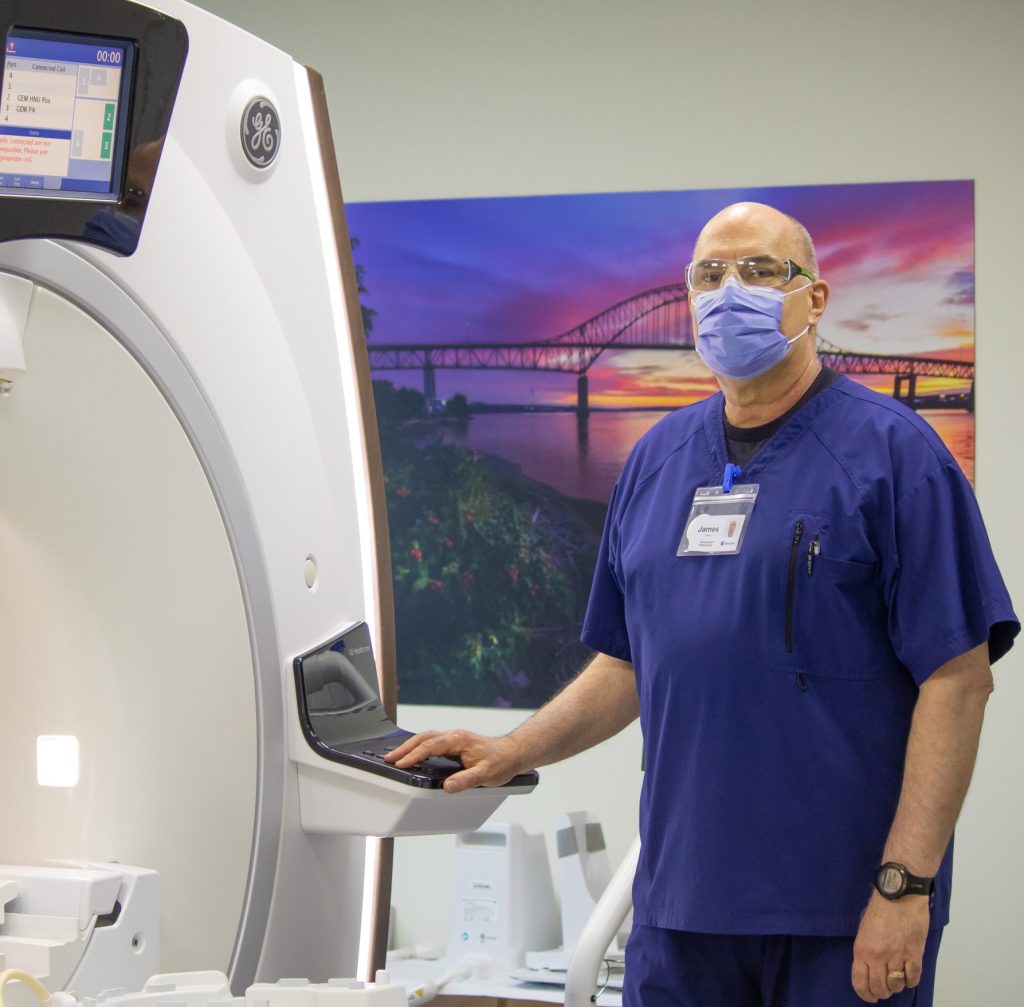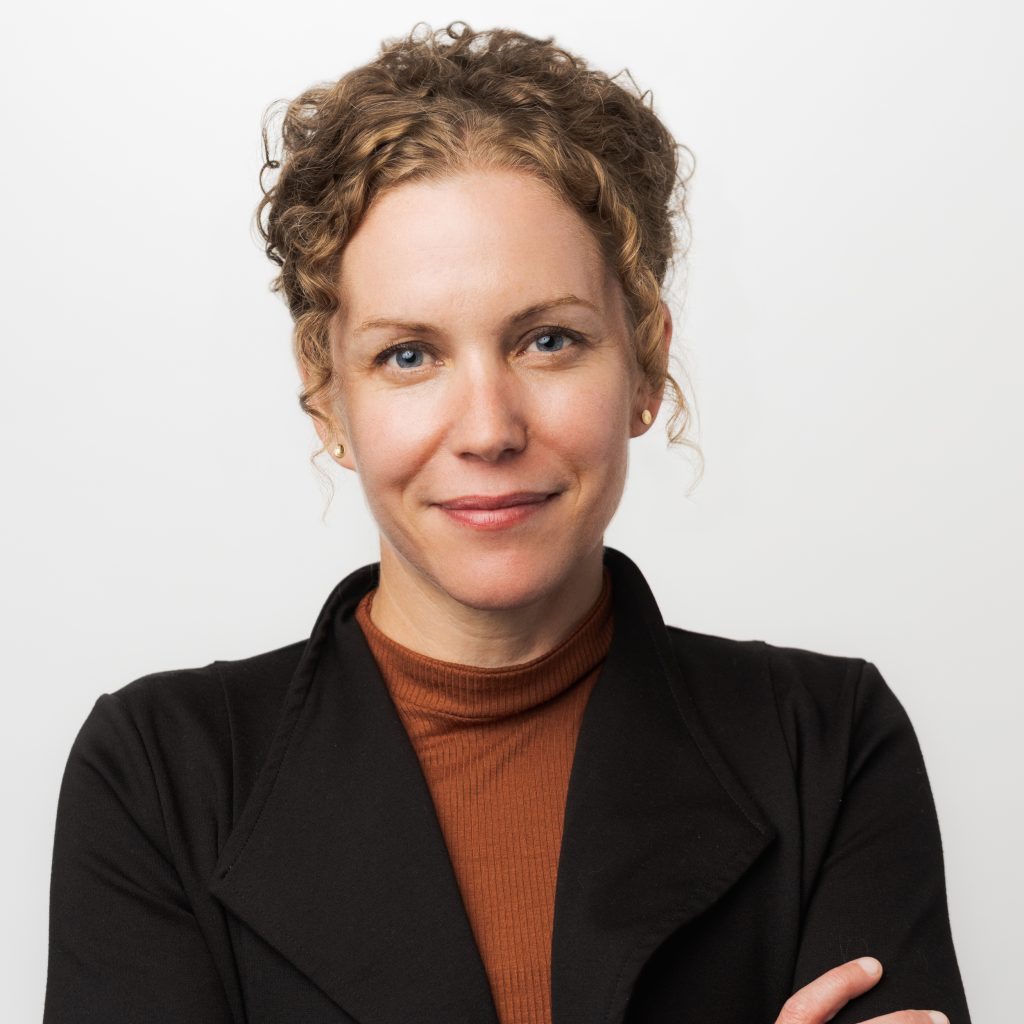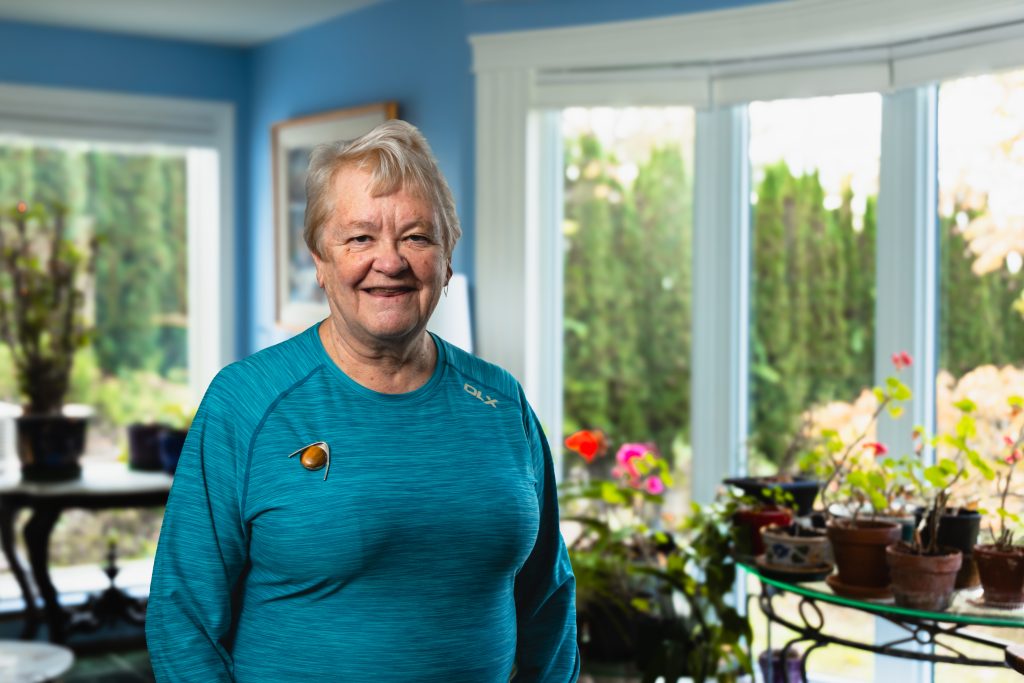News & stories, World Class Spine Research Is Happening in Saint John
June 2023
The team at the Canada East Spine Centre has your back
What do you do when you need to solve a problem?
You likely start by doing some investigation. Maybe you use Google. Or maybe you ask advice from people you trust. You might even test a couple ideas out to see if they work. In other words: you do your research.
Physicians rely on research to improve patient outcomes. When there’s no research available, they describe it like driving in the dark — they can’t see ahead of them. They have no way to know if the course of treatment they choose is the best for the patient.
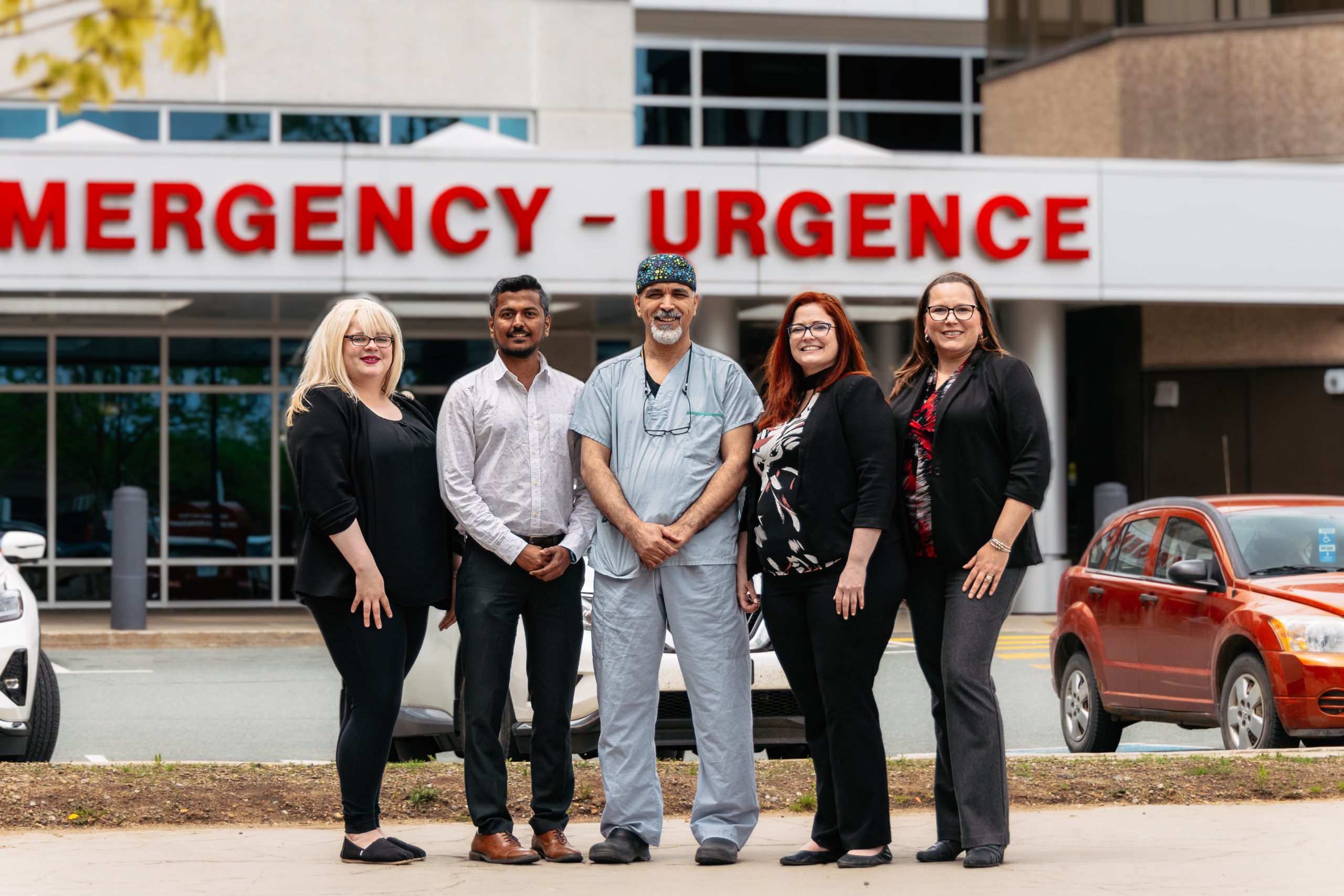
At Canada East Spine Centre, research professionals and medical experts perform internationally acclaimed research every day. They focus on topics like:
- How to improve education for patients before surgery, so they’re better prepared and feel more at ease.
- How to optimize procedures for children with spinal deformities.
- Ways to innovate how we perform surgery.
- Ways to personalize treatment and care for each patient.
Their goal is to understand what causes spinal conditions and to find the best ways to treat these complex problems. They do that through clinical trials and through their involvement with national registries.
You’ve probably heard of clinical trials. But perhaps you're thinking, What’s a registry?

A registry is a database where patient information is compiled and stored in one virtual location. The data in a registry is made up of information collected with permission in research studies.
CESC is involved with two national registries. They maintain an indispensable national registry called Canadian Spine Outcomes and Research Network (CSORN), a Canada-wide research group of 20 spine surgery centres. They’re also involved with the Rick Hansen Spinal Cord Injury Registry that collects data on patients who’ve had traumatic spinal cord injuries.
CESC’s researchers add data to these registries when they conduct research studies and they use the data in the registries when they want to research and publish papers on ways to improve spinal surgeries.
How registries and research help New Brunswickers
Dr. Najmedden Attabib is a Neurosurgeon and the Chief of Neurosurgery at the Saint John Regional Hospital. He specializes in spine care and is a member of the Canada East Spine Centre (CESC) research team and he’s an assistant professor at Dalhousie Medicine New Brunswick.
Dr. Attibib recently shared interesting insights into how research works — including ground-breaking clinical trials happening right here in Saint John.
“Let’s imagine we’re treating a tumour in your spinal canal,” Dr. Attabib said. As a surgeon, I need to determine what I should do to best help you. Should I remove the tumour? How do I know if you’re a candidate for surgery or not? I need to see the evidence out there. That’s where the registries come in. Without research, we wouldn’t have that evidence.”
Because CESC uses data gathered from New Brunswick research participants, they’re able to tailor what we learn specifically to local patients. This local patient data means better outcomes.
“Suppose you tried to apply research from Chicago to patients in New Brunswick,” Dr. Attibib continued. In that case, the two groups of people are likely very different. There probably aren’t many farmers, fishermen, or miners living in downtown Chicago. Likewise, in Chicago, maybe there's a subway line to your hospital. Whereas in rural New Brunswick, you might need to ask a friend to drive you to see your surgeon. And, how do all those factors contribute to your recovery, your lab work, your medication?”
Access to research helps medical professionals answer those questions. It helps them solve problems — sometimes even before they happen. And that means better outcomes for you, your family, and your loved ones.
Ground-breaking clinical trials happening right here in New Brunswick
A clinical trial is a research study designed to answer a specific question. It may be a question about new drugs, or medical devices, or new ways of using known treatments. Clinical trials are used to determine whether the treatment is safe, and whether it works.
Researchers use clinical trials to help identify gaps, opportunities, or problems. Then, they develop a hypothesis (essentially, their best guess as to how to fix the problem) and test their hypothesis.
Testing is crucial. Medical professionals need to be sure their ideas will work. As Dr. Attibib put it, “There's no sense having our government spend millions of dollars on a new program or procedure that doesn't prove effective.” Medical experts need to test and validate effectiveness before programming changes can happen.
How Clinical Trials Work
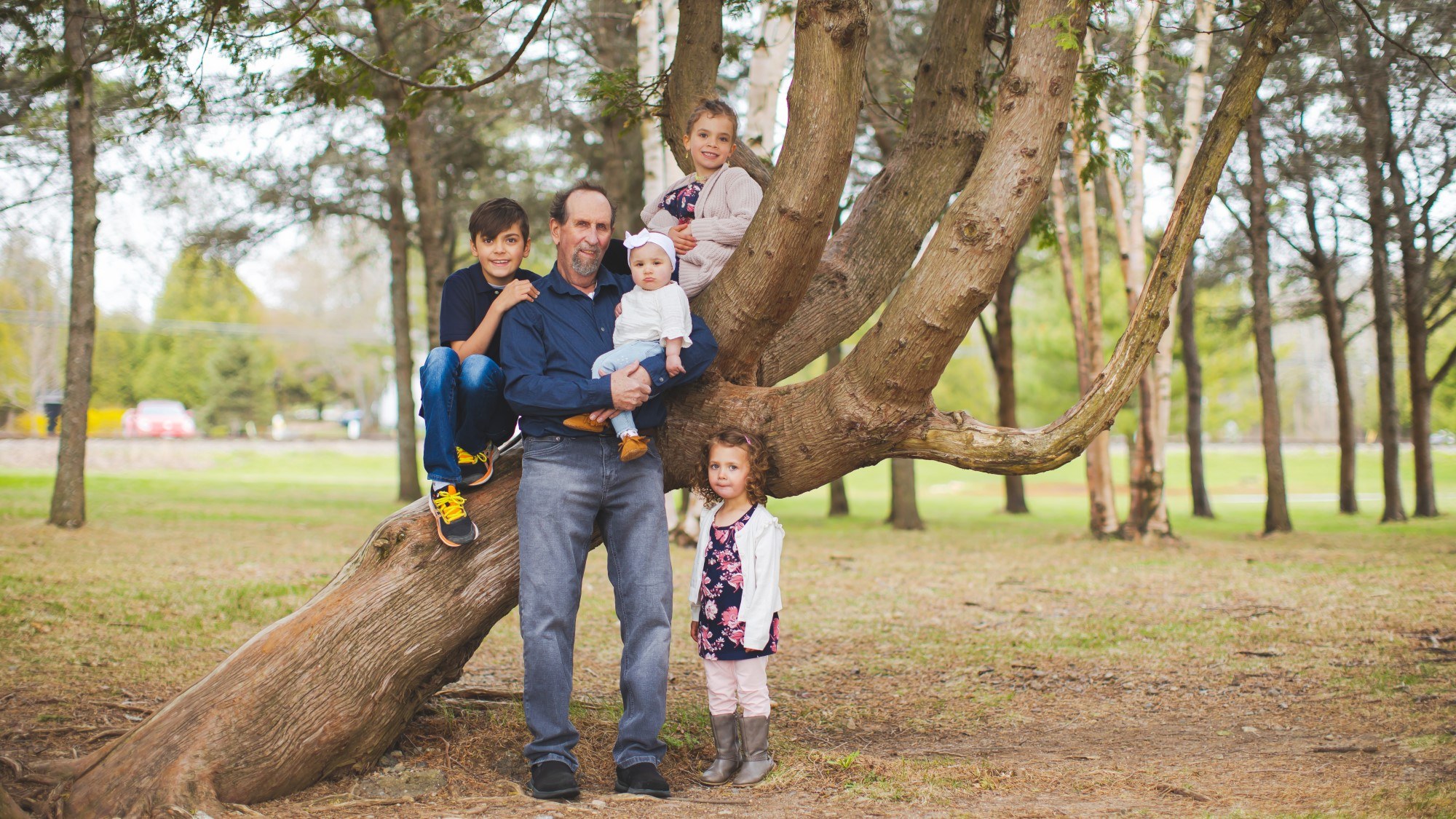
Dr. Neil Manson, an Orthopedic Surgeon at the Saint John Regional Hospital is also a founding member of CESC.
“When I first treated Dale, I discovered that a bulging disc in his spine was pinching a nerve, sending pain down his leg, and affecting his balance. He needed surgery,” Dr. Manson explained.
“Surgery is like a marathon. It’s a big hit to the body. If you train for that marathon, you’re going to do better than if you don’t,” Dr. Manson continued.
For the Prehab study, CESC partnered with Cardiologist Dr. Robert Stevenson and physiotherapist Stephen Mundle at the New Brunswick Heart Centre. They’re using the existing Cardiac Rehabilitation Program to help prepare patients physically and mentally before spinal fusion surgery.
“We essentially optimize patients like you would an athlete,” Dr. Manson said. “Then, we look at if that improves how patients recover afterwards.”
This sort of pre-surgery program has not been done in orthopedic patients before. So medical professionals need to test it and prove its effectiveness before programming changes can happen.
“We expect that healthy lifestyle changes before surgery will improve outcomes, but we need to prove it. And that’s where the importance of New Brunswick research comes in.”
CESC is also following another group of patients — the control group — who will not participate in the Prehab program. These patients receive treatment as usual: things like encouragement from the surgeon to be as active as possible leading up to surgery and the option to participate in a one-time spine surgery education class.
In Dale Parkhill’s case, the benefits of the Prehab program were life-altering.
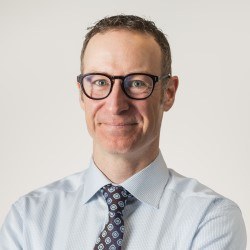
"Thanks to Canada East Spine Centre’s research, I felt better going into my surgery. I knew what to expect. I was prepared mentally and physically. And I think because I had done the exercise and classes prior to surgery, I was able to recover quite well. That's good for me, but it's also good for our medical system. It means patients get better faster, and there’s less impact on healthcare."
- Dale Parkhill, Grateful Canada East Spine Centre Research Participant
Clinical trials like the Prehab study can change practice, lead to direct improvements in patient care and build efficiencies for our healthcare system.
Ground-breaking research like this would not happen without donor generosity
Canada East Spine Centre’s research team relies on support from companies and donors to the Saint John Regional Hospital Foundation to fund their work.
“Our thoughtful community of donors play a key role in improving the lives of so many patients who suffer from spine-related problems,” said Dr. Manson.
“There is very little government funding for research. Most of CESC’s costs are covered by people who believe in the value of research and can see the positive impacts on patients. This is why support from donors to the foundation is so important to us,” Dr. Attibib added.
By making a gift to the Canada East Spine Centre you can continue to support life-changing research which will help hundreds of patients, just like Dale.
“I can tell you that Canada East Spine Centre's critical research has made a huge improvement in my life, and I know that's the case for many others, too,” says Dale.
